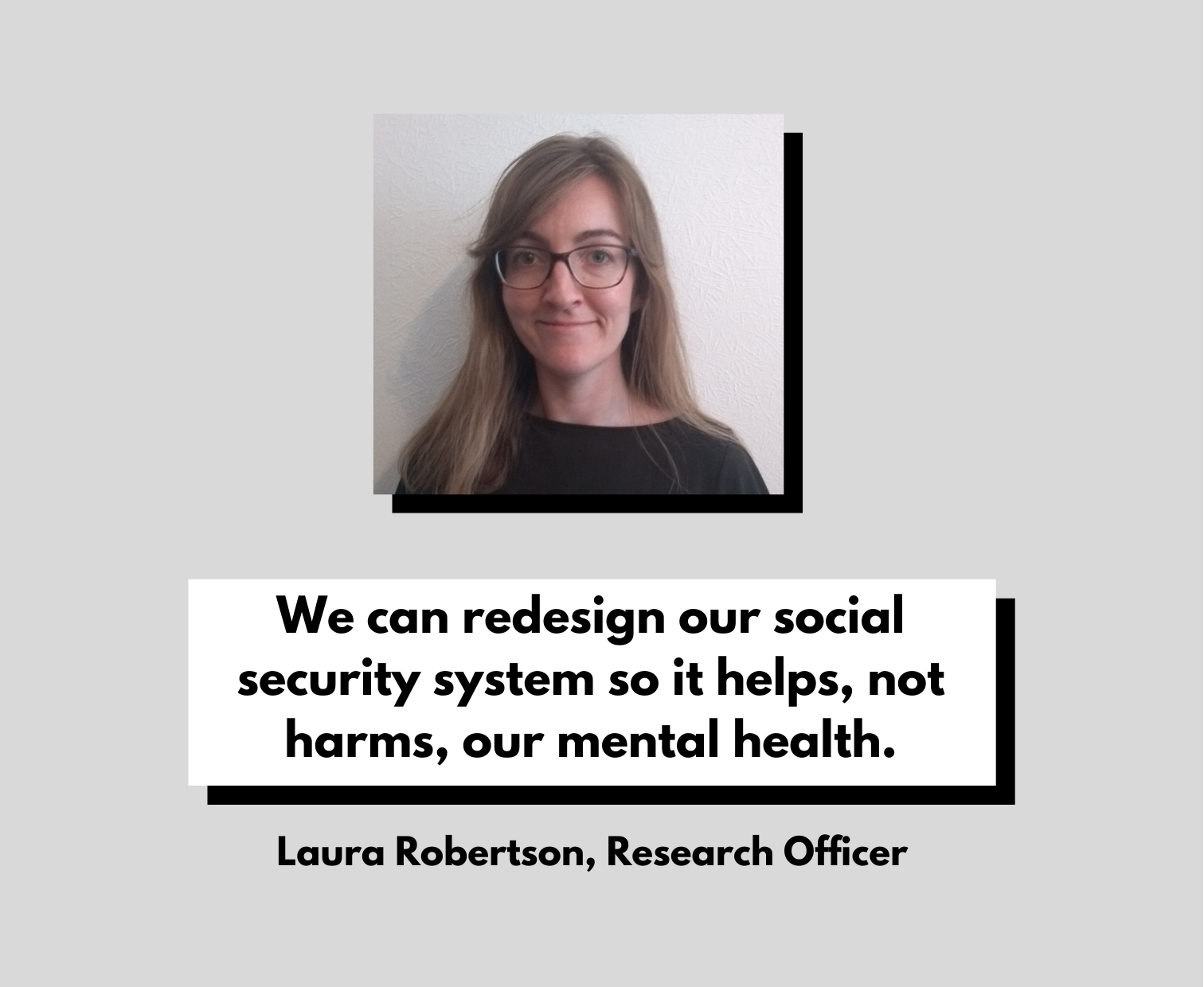In a decent and just society, we should all be able to receive the support we need through a safe system of social protection. But right now, the UK’s social security system is failing to support people with mental health problems. With rising levels of mental ill health as a result of Covid-19, there is a greater need to ensure people with mental health problems are supported by the social security system.
Last week, a report by Professor Sharon Wright and colleagues from the University of Glasgow and the Poverty Alliance, commissioned by the Health Foundation, called for change.
The report reveals the largely negative experience the UK welfare system has on people with mental health problems. People in this situation often struggle to meet the conditions required of them to receive their benefit, which do not take their mental health into account. A key criticism of Universal Credit has been the one-size all approach to job search obligations with claimants required to look for work for 35 hours a week. We heard from people who felt disempowered by the way in which job search expectations were set by their work coach with little opportunity to discuss what was appropriate for them. One woman, Yasmin, said of her experience at the Jobcentre:
“They don’t delve into your situation. Every time it’s a different person so every time you need to tell the whole story ‘My son is on child protection. I faced domestic violence in the past. I am on benefits. I can’t do work because I’m attending some counselling and everything’. Every time you need to repeat it. Then this is what they say ‘But you need to start looking for work’.”
People applying for benefits do so for many reasons. They might have lost their job entirely, have insufficient hours, be in low paid work or have a health condition or disability. However, the support received often does not recognise their personal circumstances. Benefit recipients who fail to meet the requirements, can face reductions in their payments through sanctions. For people with mental health problems, the UK sanctions regime takes little account of people’s mental health.
Evidence of the inadequacies of the Work Capability Assessment, which assesses what a person with a disability or health condition can do, is widespread. People we spoke to who have experienced the Work Capability Assessment describe it as compassionless, intimidating and anxiety-inducing. In a recent report, People, Not Tick Boxes, UK charity Mind called for a reform of the Work Capability Assessment by putting disabled people and experts in control.
As a researcher working on this report, I spoke to experts who argued for reform to the current provision of employment support for people with mental health problems across the UK. Imagine, for example, the depressed mother who is looking for work in the current context of a lack of jobs and no face-to-face support from the social security system. For people experiencing mental health problems, a lack of personalised employment support is a huge barrier to employment. Both claimants and experts told us that employment support provided via Jobcentres is not helping people into work.
Our report provides recommendations and actions for all those involved in delivering the social security system and employment support provision in the UK. Ahead of the upcoming disability benefits green paper due to be published by the UK Government later this year, we need to build a trusted, transparent, and accountable system. With rising unemployment, as well as unstable employment, support for people with mental health problems in the Jobcentre should address their individual needs. This can only happen with specialist advisors suitably trained. Experts spoken to in this research argued that the Jobcentre does not provide effective employment support for many people with mental health problems. In recognition of this, we need sustained investment in evidence-based, personalised and voluntary employability interventions by the UK and Scottish Governments. Experts have called for the expansion of the use of Individual Placement and Support interventions beyond secondary mental health care settings. This support should be available to all no matter where they live.
With almost 500,000 people in Scotland now claiming Universal Credit, our system of social protection must act as an anchor to keep people afloat, and not add to people’s distress.
We designed our benefits system so that it would be there for all of us in our times of need, we must now redesign it so that it genuinely lives up to that aim.
Laura Robertson is Research Officer at The Poverty Alliance


Enter your email address to receive regular e-updates about our work. If at any time you want to stop receiving these, simply contact us. We’ll keep your details safe and won’t share them with any other organisations for their marketing purposes. For full details see our Privacy Policy.